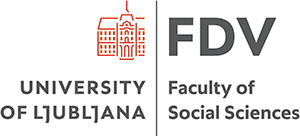Non-list based web surveys do not enable unique identifiers, which would enable us to control duplicate entries. Therefore, we have two alternatives, IP address and cookies, however each with certain limitations.
COOKIES
A cookie is a small text file sent from the server hosting the web questionnaire and then stored on respondent devices. Next time the respondent visits this same web questionnaire, the 1KA application recognizes this unit, which can be used to prevent repeated access or to enable proper continuation from eventual pausing or breakoff.
1KA application enables a variety of duration options in terms of cookies, which can be also accessed through the 'EDIT' - 'Settings' - 'Respondent Access' - 'Completion options'. When you select ‘The same respondent can complete the survey only once‘ under the ‘Multiple responses‘ option, you have following options for cookie storage duration:
- ‘Until the end of the browser session‘ - where the cookie will be deleted as soon as the respondent closes their browser (Internet Explorer, Mozilla Firefox, Opera,...); so if the respondent returns within the same session, they can make further corrections. Caution: if a second respondent enters in the same session after the first respondent, the cookie will still be from the first respondent and there will be problems!;
- ‘1 hour‘ - means that the cookie will be deleted after one hour from the first time the respondent clicked on the survey URL. The same warning as above (browser session) applies;
- ‘1 month‘ - the cookie will be deleted after one month since the respondent first clicked on the survey. The same warning as above (browser session) applies.
You can find more about cookie settings and options for future continuation of the survey fulfilment in the Settings for respondent access: cookies and passwords manual.
Limitation: The problem with cookies is that they are tied to the browser, which means that respondents using another browser, other devices or users deleting the cookie can complete the survey again. Cookies face serious problems due to increasing ethical and legal restrictions, as well as because some users decide to block them. For these reasons, cookies serve poorly as a replacement for the ID code.
IP ADDRESS
The IP address is a number assigned to all devices logged into the network, including the respondent’s device. 1KA application enables you to block duplication of IP addresses, which can prevent the same person from repeatedly responding to your survey.
This functionality can be accessed under the 'EDIT' - 'Settings' - 'Respondent access' - 'IP recognition' tab. In the ‘IP recognition' category select the desired option - for editing responses during completion and multiple responses.
Limitation: The problem may occur in the case of dynamic IP addresses (dynamic IP address for the same device is changed when disconnected and restored) or in cases where the number of devices on the same network has the same IP address (eg. in organizations).
Despite these limitations, the use of IP blockage may prevent at least some of the simpler frauds like fake responses or server attacks coming from a single device.
In general, we do not recommend using IPs and cookies for restricting access to the survey, because they can cause various expected and unexpected problems. In the default settings of the 1KA application these options are usually turned off. Still, in some specific situations, they can be useful, particularly if we know that in our target population none of the above problems emerges.
The best way to prevent duplicate entries is to use individual codes. In the 'PUBLISH' - 'Invitations' tab, you can set individual codes through the interface for sending email invitations, which is available to users of the private package 3KA. Usually, this code is then used in the email invitation, either automatically (in the URL of the survey) and does not need to be entered by the respondent. However, we can require the code to be entered manually. Similarly, the code can be sent in other ways, e.g., in a letter, and respondents can retype it. The generation and use of individual codes is described here.



